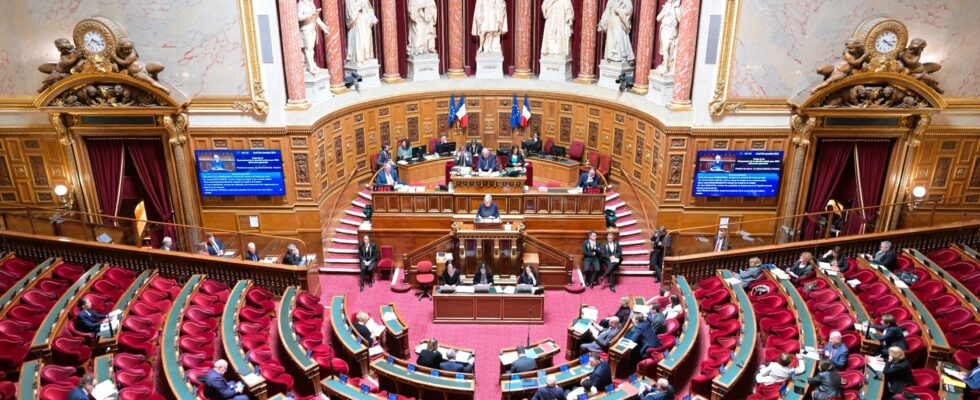The Senate largely adopted, this Tuesday, November 26, the Social Security budget for 2025, despite the abstention of the Macronists who continue to engage in a standoff with the government over the efforts required of companies in this high-risk project for Michel Barnier.
Unsurprisingly, the troops from the government camp, largely in the majority in the hemicycle, approved the text by 202 votes to 109, with the votes of the right and the centrists. But the small Macronist group, which includes around twenty senators, mostly abstained, sending a warning signal to the government, on the eve of a crucial meeting, Wednesday at 2:00 p.m., between deputies and senators, responsible for reach a compromise version during a joint committee (CMP). “Our group cannot be satisfied with the labor saving measures adopted by the government,” said Dominique Théophile, the representative of this group in the High Assembly.
Because a major divergence persists on a flagship measure, the reduction in reductions in employer contributions. The government proposed an effort of four billion euros on businesses, the Senate reduced it to three billion… But the Renaissance parliamentarians continue to ask for the total removal of the measure. Negotiations could therefore stretch to the CMP, where coalition troops will be in the majority. With a threat from the Ensemble pour la République (EPR) deputies: could they block any agreement?
Common base “in play”
Tuesday morning in a group meeting, they did not decide. “The group wishes to continue discussions,” including with the government and senators, said a participant. “We continue to increase the pressure,” assumes another.
The EPR deputies plan to meet again Tuesday evening or Wednesday morning. If the CMP failed, it would “not be the end of the world. But, if it fails because of EPR, it is a political risk”, said Budget Minister Laurent Saint-Martin during the meeting according to his surroundings. “More broadly, it is the existence of the ‘common base’ that is at stake,” he added.
According to several participants in the meeting, former Prime Minister Elisabeth Borne strongly disapproved in substance of the state budget and that of Social Security as well as the government’s method, while being, according to those around her, opposed to making fail the CMP. “If we all arrive with our impassable red lines, there will never be an agreement. At that time we should not be in the same boat,” warned Marc Fesneau, president of the MoDem deputies.
The Prime Minister “said that he was ready to make an additional effort, but he did not quantify it”, for his part indicated another executive from the government camp. For Laurent Saint-Martin, a “good consensus” could emerge in CMP by reducing the effort “by a little more than half”, or 1.5 billion compared to four initially requested from companies.
49.3 inevitable
The text was supported en bloc by the senatorial majority made up of the LR (right) and centrist Union groups, with the support of Independents close to Edouard Philippe, while the three left-wing groups (socialist, environmentalist and communist) voted against, as well as part of the Radicals (center-left) and the few elected RN (far right).
In the ranks of the coalition, many have warned of the importance of an agreement in CMP, while the threat of censorship is ever more pressing, with the National Rally ready to vote for it if it is not heard. If the use of 49.3 is inevitable, activating it on a consensus text may seem less cavalier than a forced passage without prior agreement between the two chambers.
